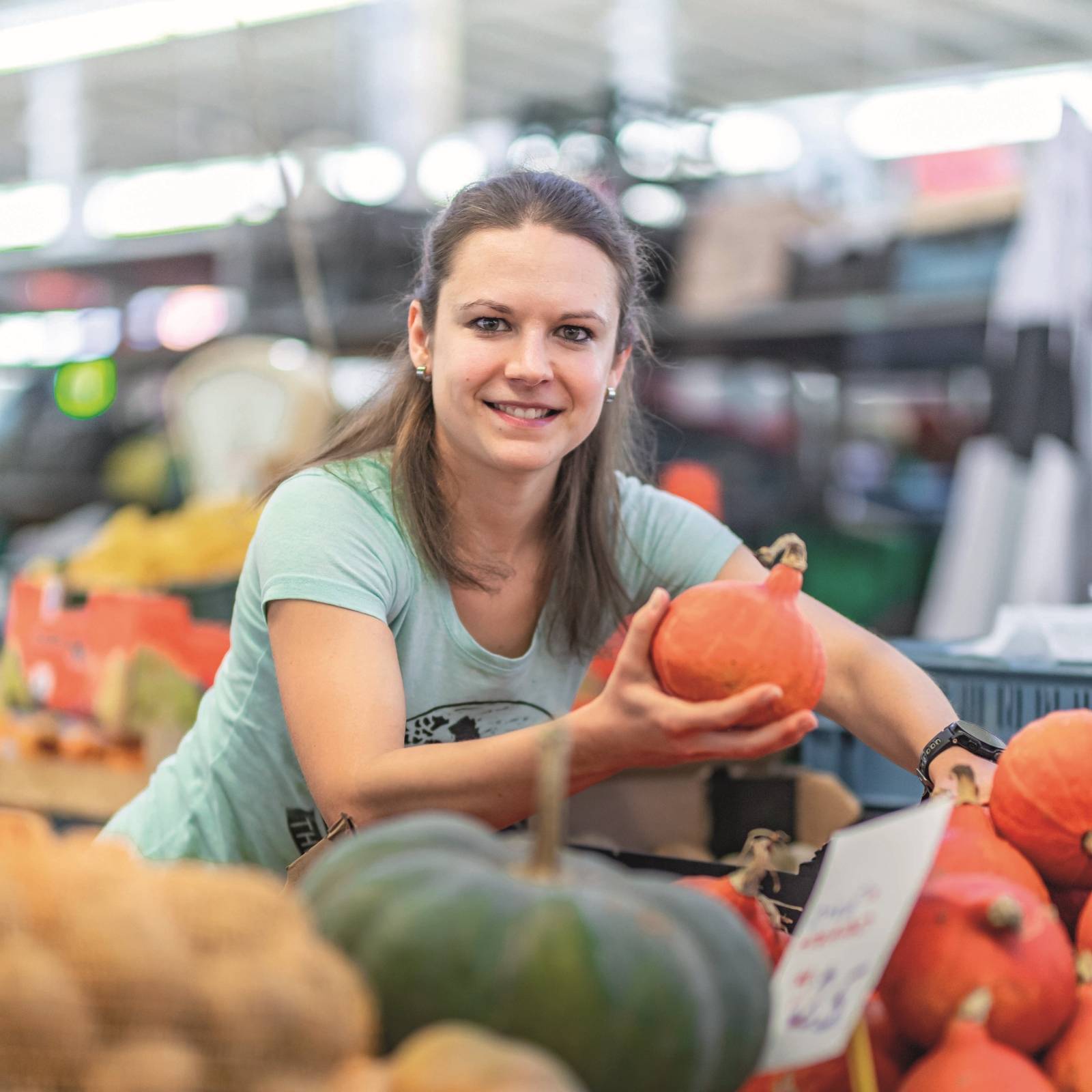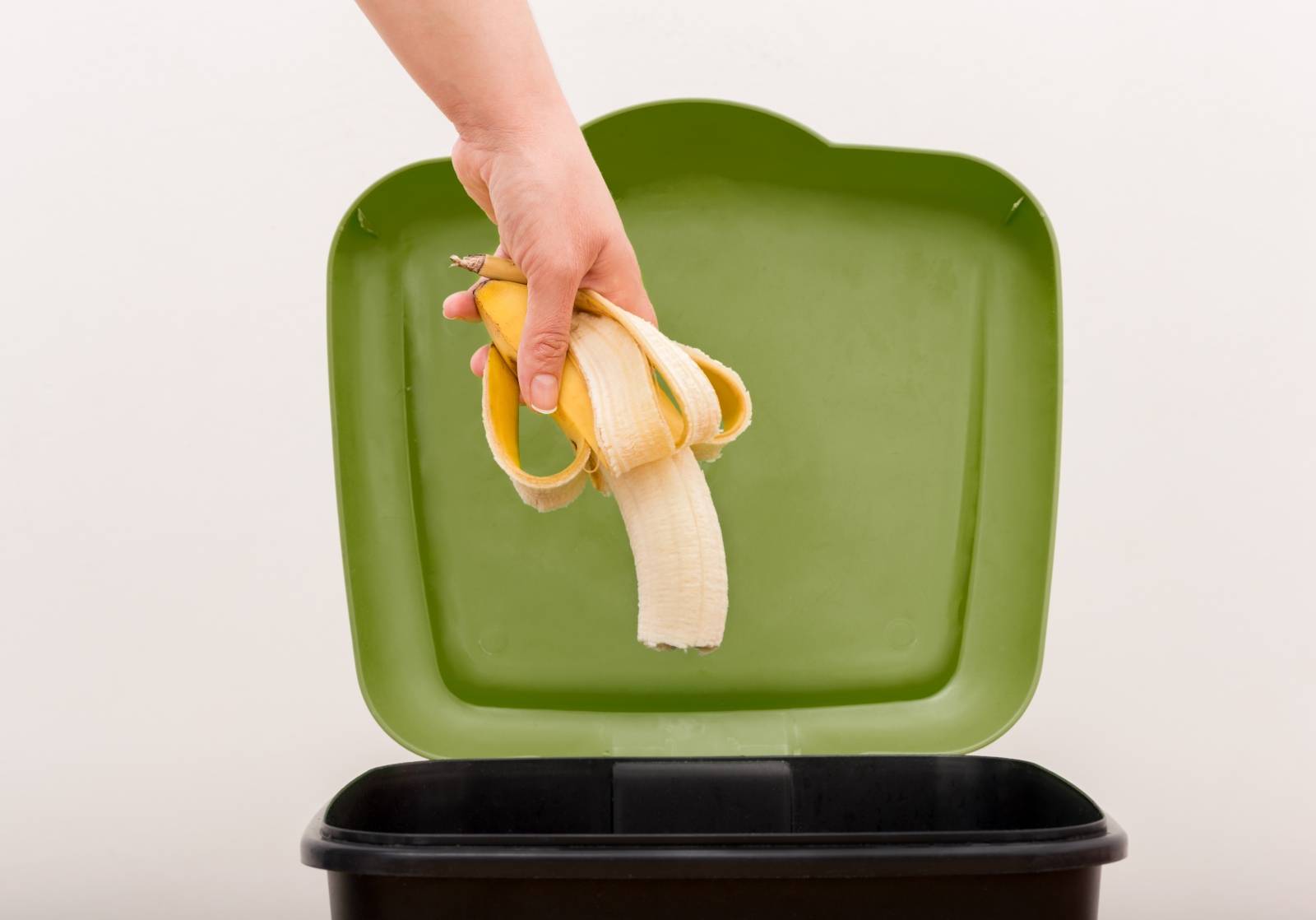
From farm to trash – food waste and what we can do about it
14. 08. 2024
According to the Food and Agriculture Organization, up to one third of the food produced worldwide is thrown out each year. What are the impacts of food waste, and how can we prevent it?
Since 2020, September 29 has been recognized as the International Day of Awareness of Food Loss and Waste. This day was declared by the UN to highlight the negative impacts of food waste and promote a better, more resilient food system. The modern world faced a food crisis as early as 2008, and our planet continues to struggle with similar issues today. The causes are numerous and interconnected: climate change, drought, soil degradation, rapid population growth, the energy crisis, and last but not least, the current geopolitical situation, particularly the war in Ukraine. World leaders are aware of the problem; some are trying to address it, while others remain passive. The scientific community is also engaged in the debate on how to tackle the situation, proposing various solutions, such as targeted gene editing of plants to ensure higher resistance to diseases and pests, which can lead to larger yields.
How to feed the whole world
For political leaders to make informed decisions (like allowing the use of gene-edited crops), they need to have enough relevant information based on scientifically validated data. That is why various studies, surveys, and research efforts are conducted to provide such information. The Public Opinion Research Centre (CVVM) at the Institute of Sociology of the Czech Academy of Sciences (CAS) conducts regular surveys among the Czech public. These surveys investigate people’s attitudes towards food waste, their shopping and consumer habits, and what they perceive are the most pressing issues in this area.
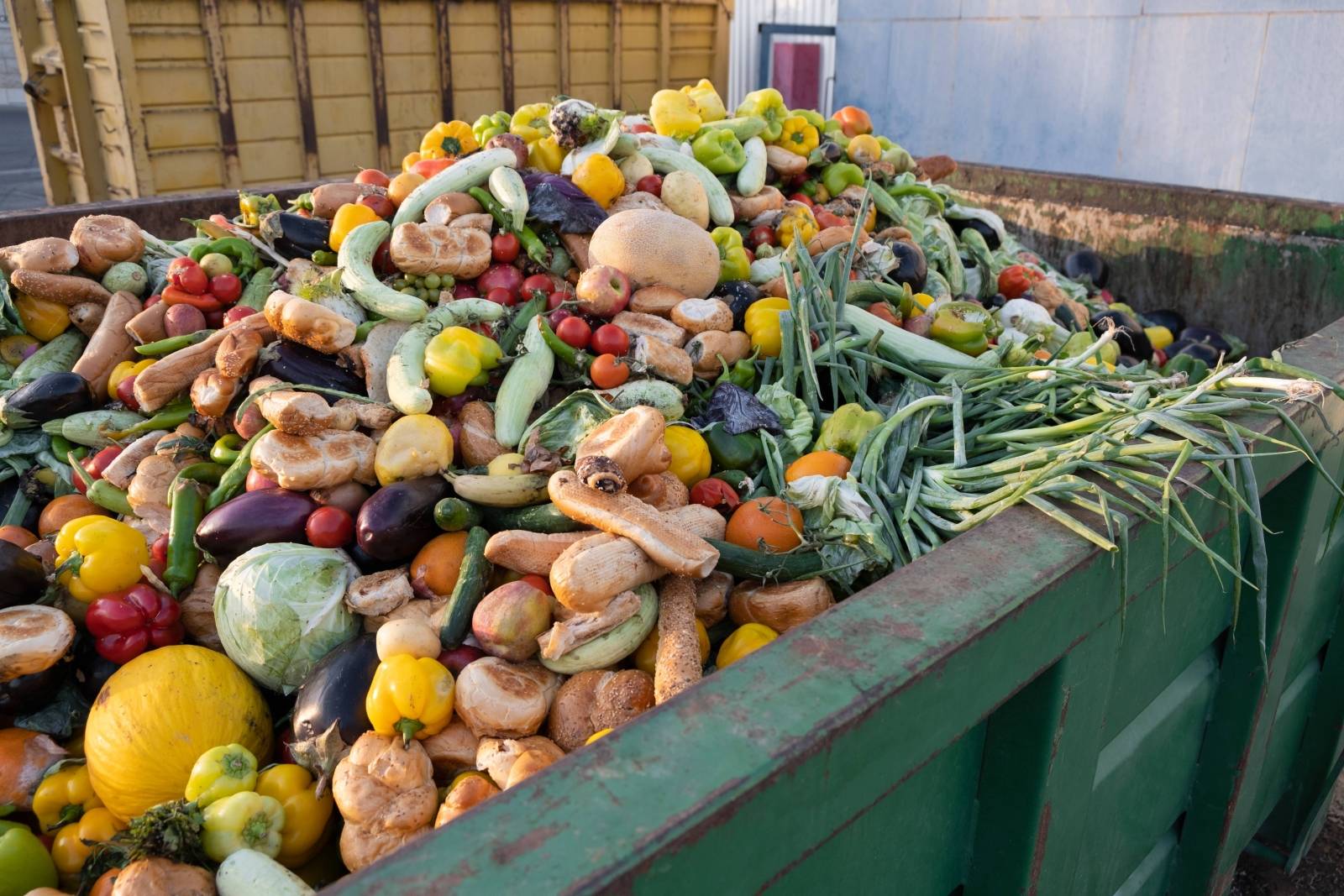
“Food waste has very serious ecological, economic, and social impacts. Every year, approximately one-third of the world’s food production is wasted, which amounts to about 1.3 billion tons. This quantity could feed up to three billion people,” says Radka Hanzlová from the Institute of Sociology of the CAS, who also focuses on this topic within the Foods for the Future research program of the CAS Strategy AV21. The program aims to contribute on a national level to ensuring a sufficient supply of quality food and on a global level to utilizing the potential of Czech science to help developing countries. It responds to one of the most important challenges of our time: securing food for the ever-growing global population.
According to the Food and Agriculture Organization, approximately 96 to 115 kilograms of food waste per year can be attributed to each European. More than half of this waste comes from households (thrown out food), while the remaining losses occur in production, processing industries, food services, and retail and wholesale sectors.
Compared to other parts of the world (such as many African countries), Europeans live in relative prosperity. There is plenty of food (an excess of it, actually), and store shelves are fully stocked. This abundance is likely why Europeans are among the biggest food wasters. Each year, they collectively throw out food worth an astonishing 149 billion euros. However, [as of 2022], the average inhabitant of the Czech Republic is also beginning to feel the crisis, especially in their wallets. The prices of fruit, vegetables, bread, butter, and other products are rising, and not just by small change.
Nevertheless, as Hanzlová points out, there are not enough conclusive studies and data available globally or in the Czech Republic, nor is there an exact methodology for measuring food waste and determining what to recognize as such. Therefore, most of the figures are only educated estimates. “Even so, the numbers are alarming,” the sociologist adds.
|
Mgr. Radka Hanzlová
Radka Hanzlová graduated in sociology from the Faculty of Arts at Charles University. She works as an analyst at the Public Opinion Research Centre (CVVM) of the Institute of Sociology of the CAS. Her research covers topics such as personal wellbeing, happiness, life satisfaction, the environment, climate change, consumption, and food waste. She has a personal connection to the issue of food waste, with its ecological impacts being the main reason she adopted a plant-based diet. |
What do Czechs think?
In 2022, the CVVM conducted several surveys to understand attitudes towards food waste in the Czech Republic. Respondents were asked to agree or disagree with various statements. The most common agreement, at 82%, was: “When I prepare food, I make sure to use everything I can.” More than three-fifths of respondents agreed that “when they waste food, they feel guilty.” The findings also show that for two-thirds of respondents, the deciding factor in whether to throw out food is its appearance or smell.
Regarding the appearance of discarded food, especially fruits and vegetables, researchers investigated how Czechs have it with buying imperfect produce. Twenty to thirty percent of the total quantity of fruit and veg doesn’t reach consumers at all. A survey revealed that the Czech public isn’t very supportive of “ugly” produce. At the same price, 65% of consumers would choose perfect-looking produce over imperfect specimens.
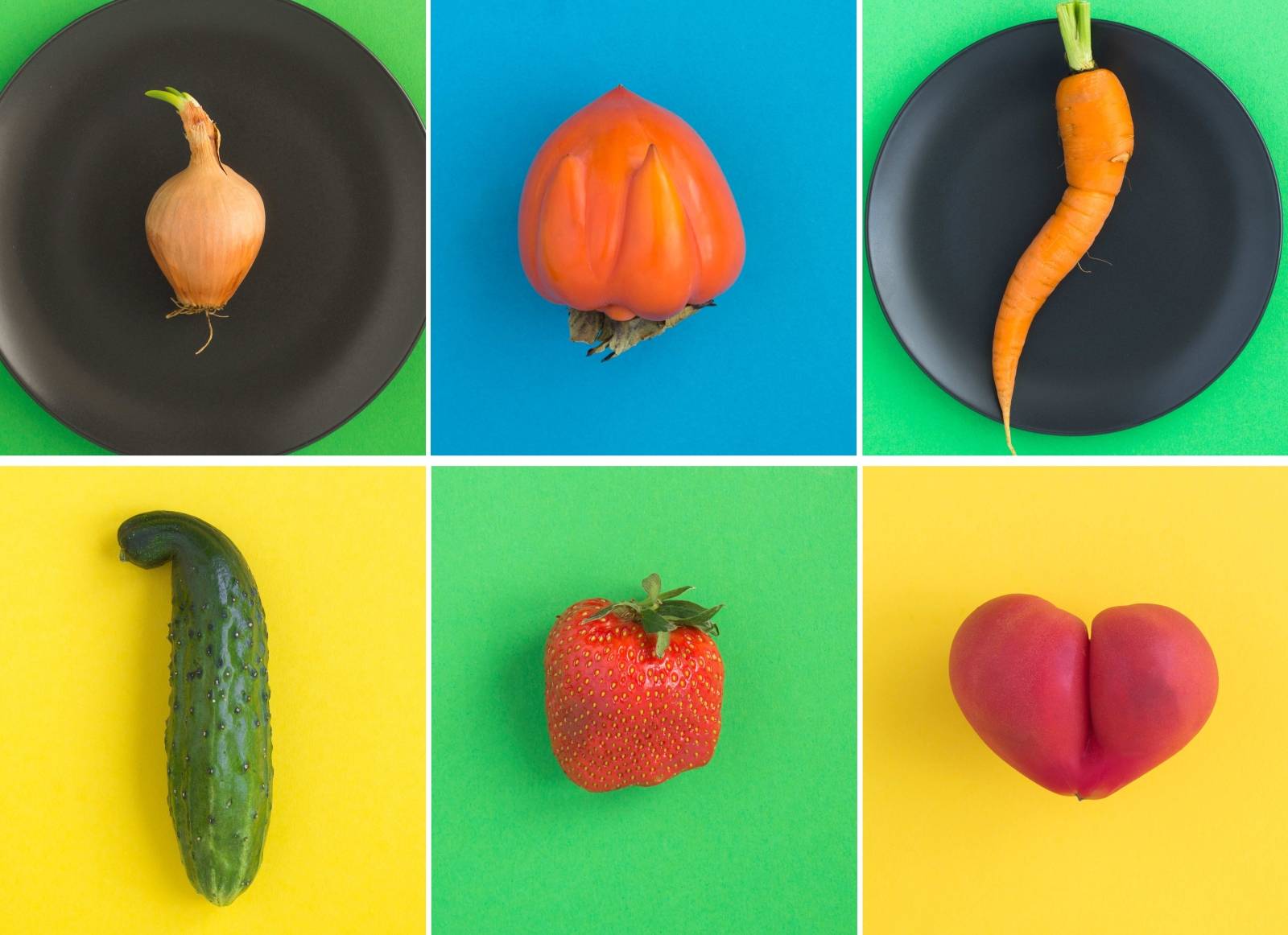
Just why do consumers prefer perfect produce? It is easier to clean and cut. When researchers asked why people might buy imperfect produce, the main reason was the belief that imperfections mean naturalness and that such products are not chemically treated. Respondents also believe that the appearance of fruits and vegetables in supermarkets is heavily influenced by EU and retail chain standards.
Questions about environmentally friendly food shopping and eating habits were also raised. For the Czech public, the price is clearly the most important factor when buying food, followed by the ingredients, while the packaging material is the least important. Approximately one quarter of respondents occasionally buy organic food at least sometimes and almost three-fifths compost at least sometimes, either in their garden or using brown bins for compost (food waste).
What else do people do that’s good for the environment? Most often, they bring their own bags for shopping and recycle at home. However, they don’t frequently use reusable produce bags or try to limit car trips (for shopping).
By when can we consume food?
Do you know the difference between “best before” and “use by”? The explanation is in a separate box below. Most Czechs (73%) correctly understands the “use by” label. In contrast, the meaning of “best before” is less clear, with only 46% respondents understanding it correctly. In recent years, awareness of these terms among the Czech public is on the rise. Czechs are not alone; the same trend can be observed in other EU countries. It turns out that nearly one tenth of wasted food (8.8 million tons) is discarded because consumers don’t understand the labels.
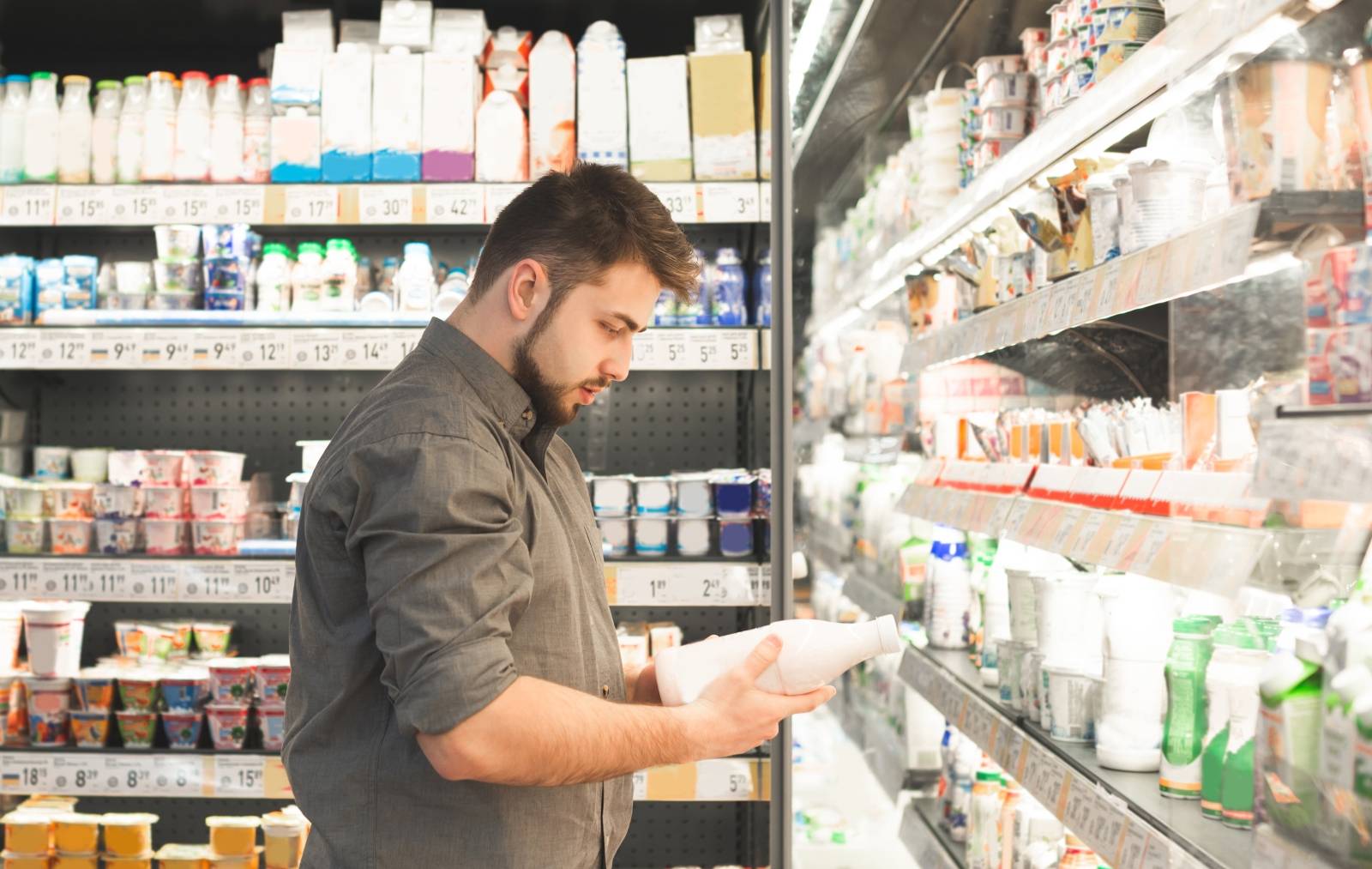
|
Expiration Date vs. Best Before Due to a common misconception, you might be throwing out food unnecessarily. If the label on a product says “use by,” it should not be consumed after this date as it could pose a health risk. Such products cannot be sold in stores after their expiration date. This mainly applies to fresh foods – meat, fish, dairy products. On the other hand, “best before” indicates products that don’t spoil quickly, have a longer shelf life, and can still be sold (clearly marked) after the date, and thus consumed. This includes items such as pasta, rice, cookies, and canned goods. 64% of respondents consume food after the “best before” date at least occasionally. |
Further research indicates that about half of the respondents consider food waste a major problem, although many think there are more urgent issues to address. However, it’s good news that only one in ten people don’t see food waste as a societal problem. Research shows that it is indeed a global issue that needs to be addressed head-on.
Supermarkets are also trying to reduce food waste. For example, Lidl offers ‘Waste Not’ boxes of imperfect produce, Globus and Tesco have sections for items nearing their expiration date, and Albert offers a 30% discount under a ‘help us not waste’ initiative. What does Hanzlová think? “Every effort should be appreciated because food waste is still not a mainstream topic. I’m very pleased that such activities are on the rise. It’s great because people can also save money this way.”
So, how can we avoid wasting food? We don’t need to wait for top-down regulations; everyone can start making changes themselves. “For me, it’s essential to follow basic rules and guidelines to prevent waste. This includes planning grocery shopping, proper food storage at home, and cooking appropriate portions. I can’t even remember the last time I threw food away,” Hanzlová says. More useful information can be found on the website of the Czech project Zachraň jídlo, with which researchers from the Czech Academy of Sciences’ Strategy AV21 also work.
Tips on How to Reduce Food Waste:
-
Plan your meals and shopping ahead of time.
-
Shop with a grocery list.
-
Avoid being tempted by “bargain” supermarket offers.
-
Buy seasonal and local produce.
-
Store food properly and freeze when necessary.
-
Make use of all parts of produce and compost what can’t be used.
-
Regularly check the contents of your fridge.
-
Share or donate unused food.
-
Understand the “best by” label on food packaging.
-
Serve appropriate portion sizes at mealtime.
There’s an app for that
Thankfully, saving food has also entered the digital age. The Too Good To Go initiative, which covers Europe and North America, offers “Surprise Bags” of surplus food and meals from local restaurants, cafés, and stores that people can order at a discount and pick up. As of 2024, the application is available in Prague and Brno. A similar project is Nesnězeno, available all over the Czech Republic, which too connects businesses with consumers and has an assortment of food packages (baked goods, produce), surplus meals off the daily menu of restaurants, and baked desserts. You can even come across local florists offering cut and arranged flowers at a fraction of the sale price.
Written and prepared by: Markéta Wernerová, External Relations Division, CAO of the CAS
Translated by: Tereza Novická, External Relations Division, CAO of the CAS
Photo: Shutterstock; Jana Plavec, External Relations Division, CAO of the CAS
 The text is released for use under the Creative Commons license.
The text is released for use under the Creative Commons license.
Read also
- A trapped state: The pandemic impact on public attitudes, trust, and behavior
- Aerial archaeology: Tracing the footsteps of our ancestors from the sky
- Archaeologists uncover ancient finds along Prague Ring Road
- Our microbiome largely depends on what we eat, says microbiologist Michal Kraus
- The ABCs of writing: Why did its invention mark a turning point for humankind?
- We learn, remember, forget… What can memory actually do? And can we outsmart it?
- New Center for Electron Microscopy in Brno opens its doors to global science
- The hidden lives of waste: What can we learn from waste workers and pickers?
- A unique lab is hidden right beneath Prague’s Vítkov Hill
- Renewables are a strategic investment in European security, scientists say
The Czech Academy of Sciences (the CAS)
The mission of the CAS
The primary mission of the CAS is to conduct research in a broad spectrum of natural, technical and social sciences as well as humanities. This research aims to advance progress of scientific knowledge at the international level, considering, however, the specific needs of the Czech society and the national culture.
President of the CAS
Prof. Eva Zažímalová has started her second term of office in May 2021. She is a respected scientist, and a Professor of Plant Anatomy and Physiology.
She is also a part of GCSA of the EU.
